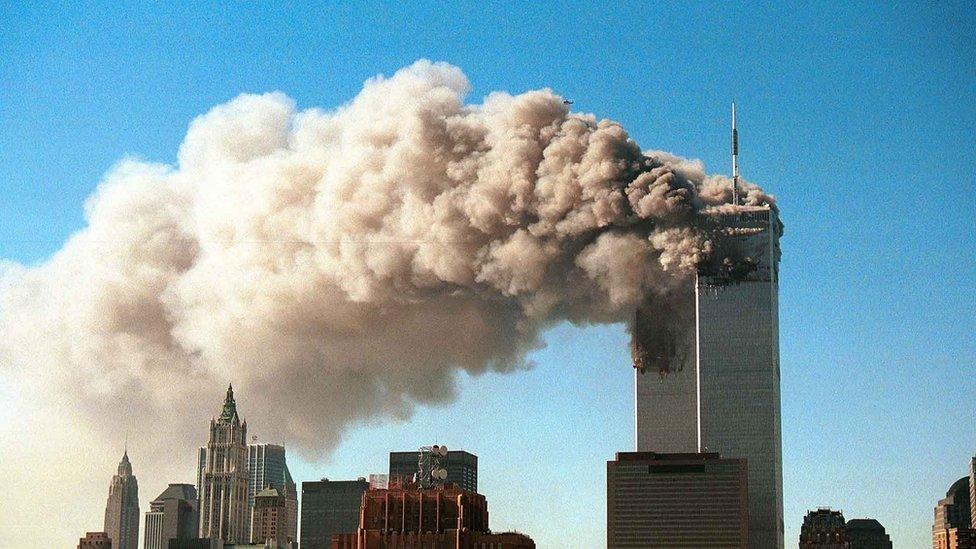Guantanamo Bay: In a courtroom, just feet away from 9/11 suspects
- Published
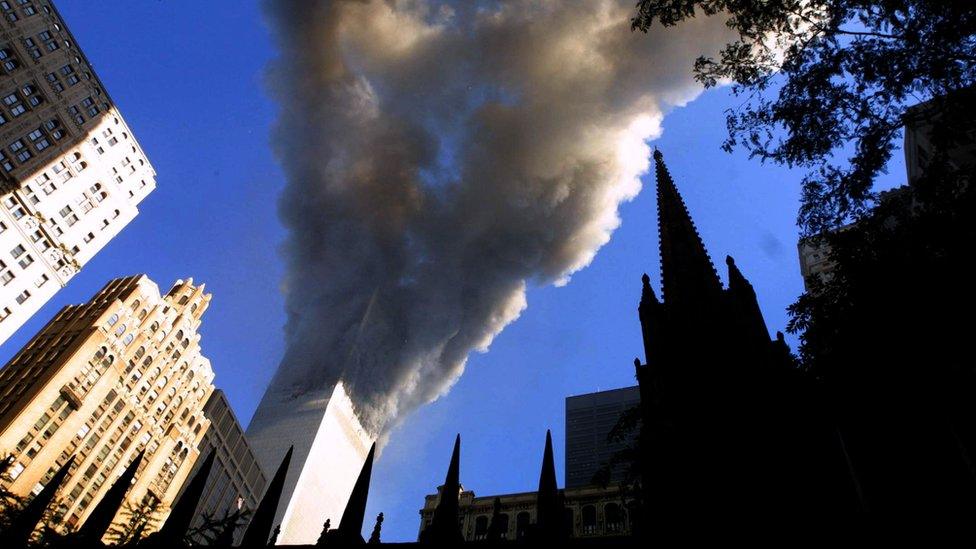
This grim anniversary has meant renewed focus on the five suspects in detention accused of involvement in the 9/11 attacks.
The men, including Khalid Sheikh Mohammed, have all appeared in court in Guantanamo Bay this week after an 18 month hiatus in pre-trial hearings caused by the coronavirus pandemic.
Behind the glass in the viewing gallery have been a small number of relatives of victims of the attacks, some members of non-profit organisations and a handful of journalists, all there to observe proceedings.
Guantanamo Bay already feels cut off from the world, and given the magnitude of this case and weight of the horrific crimes being considered the courtroom here feels all the more singularly alien.
"Walking into the courtroom for the first time was extremely emotionally powerful for me," says Dr Elizabeth Berry, whose younger brother Billy Burke was one of the firemen in the North Tower when it collapsed.
"I wasn't quite sure what to expect because you see things in the newspapers, portrayals of the way people look which are not really an accurate representation when you see them in the courtroom. It was very moving and very difficult," she says.
Aleem Maqbool was there when all five 9/11 suspects attended court in Guantanamo Bay for a pretrial hearing
Dr Berry has attended many of the 42 pre-trial hearings in this case at Guantanamo Bay and says she specifically wanted to be here for the 20th anniversary of the attacks to feel she was supporting the team fighting for justice for her brother and nearly 3000 others.
"I felt what better place to honour my brother than here with other family members, what and with this, the prosecution team," she says.
A trial like no other
It was noticeably difficult for most in the gallery to stop glancing, sometimes staring, at the defendants throughout the sessions.
Khalid Sheikh Mohammed, diminutive and with a henna-dyed orange beard, bounded into the courtroom the first morning to his seat beside his legal team.
He and the four other defendants talked throughout much of the proceedings, either to their legal teams or to each other.
Khalid Sheikh Mohammed would often turn around for long periods, draping an arm over the back of his chair and chatting to Walid Bin Attash the defendant sitting directly behind him; the man believed to have conceived of the idea of the 9/11 attacks and overseen their planning, in animated discussion with one accused of training two of the hijackers.
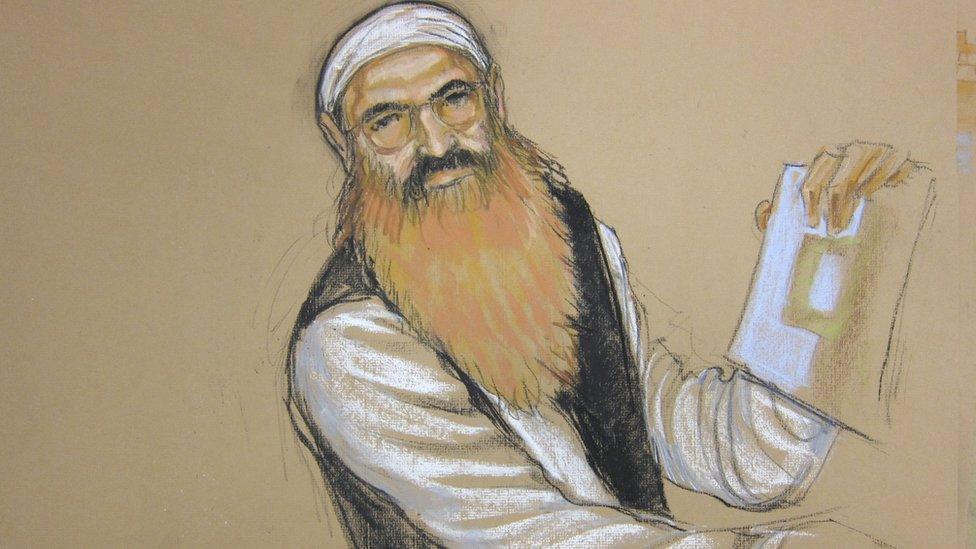
A courtroom sketch of Khalid Sheikh Mohammed.
By their feet, it was noticeable that each of the five defendants had a large plastic tub filled with papers and files that they would often delve into.
"They've got all sorts of things in there," says Alka Pradhan, a lawyer representing Ammar al Baluchi who is alleged to have provided logistical support to 9/11 attackers including through money transfers.
"They've got legal motions they want to talk to us about. They've got printouts from advocacy websites. Ammar, for example, will often ask us to print out recent material from his ongoing campaign with Amnesty International so he can discuss it," says Ms Pradhan, indicating just how engaged all five defendants are in the direction their legal cases take.
It is striking that many of the women that form part of the defence teams of the 9/11 suspects, like Alka Pradhan, wear the hijab in the courtroom in the presence of their clients. Some even cover themselves in an abaya, which they remove in sessions during which the defendants are not present.
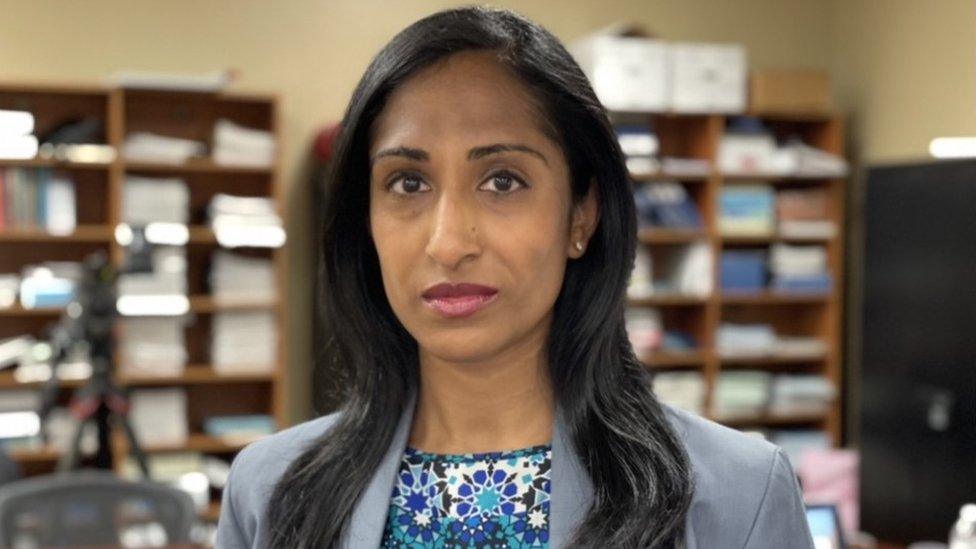
Defence attorney Alka Pradhan
"I do it in the courtroom because several of the guys were tortured specifically by females in very specific ways, the intentional sexual humiliation by women," says Ms Pradhan.
"You can see a difference in the way they talk to you when you put the hijab on. It's not that they refuse to talk to me if I wear a hijab and it's not that they have ever said you must wear hijab, but there is a difference in the way they interact with me," she says.
'I'm glad they're so well taken care of'
The 9/11 suspects are not shackled in the courtroom, they were not made to wear masks like everyone else, and their legal teams are allowed to bring them clothing deemed "culturally appropriate" and even paramilitary-style dress.
This week, for Ramzi bin al-Shibh, the man believed to have organized one cell of the 9/11 attackers, that included a camouflage jacket of the type Osama Bin Laden often wore and that his fellow defendants including Khalid Sheikh Mohammed have worn in hearings in the past.
"I'm glad they're so well taken care of," says Elizabeth Berry of the men accused of playing a part in the death of her brother, though the hurt she feels at seeing the defendants is abundantly clear.
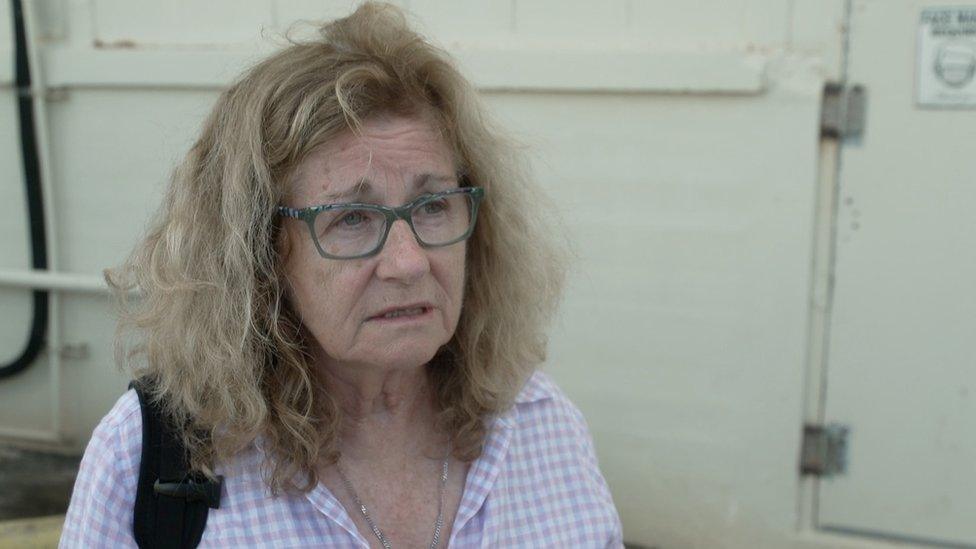
Dr Elizabeth Berry's brother Billy was one of those killed in the 9/11 attacks
"I think we do take very good care of these guys and it's obvious they get better healthcare than I get. But it's all part of the process, it's part of accepting that this is what has to happen in order for it to come to a resolution," says Dr Berry.
Resolution seems a very long way off. After all, a start date for the trial of these men has yet to be set.
This week we heard defence teams question the very basis of the process here, given that the 9/11 suspects will be tried not in civilian courts but military commissions, suggesting they cannot be accused of committing "war crimes" because there was no war, and as such a military commission is not appropriate.
The question of torture
The issue of torture, and the US authorities' secrecy about its use, also continues to cast a long shadow over proceedings, with arguments about what evidence is admissible given what the defendants were subjected to at Guantanamo Bay and so-called 'Black sites' elsewhere.
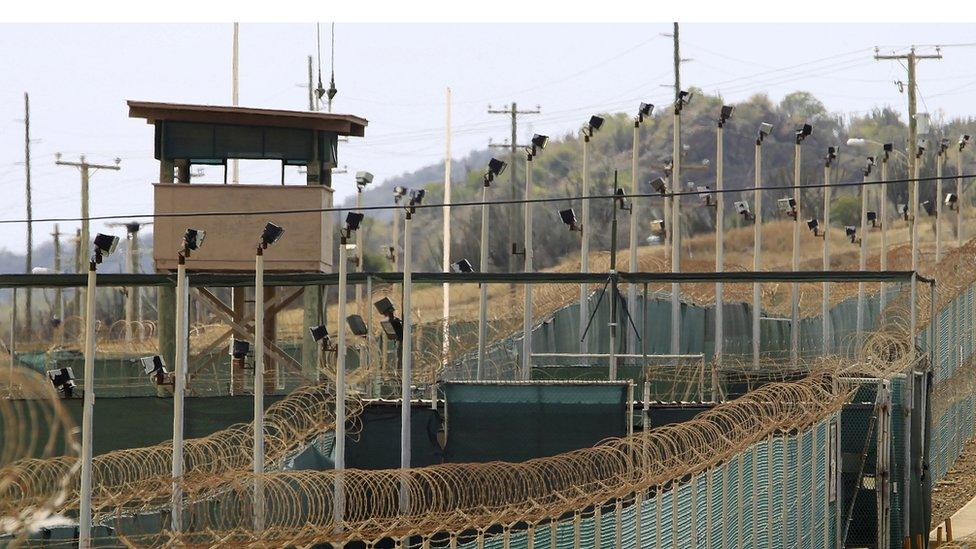
The exterior of Guantanamo bay detention camp in 2013
"There is no way to have a fair trial at this point if we are going to continue this charade," says Ammar al Baluchi's lawyer, Alka Pradhan.
"We have hundreds of motions still pending all because the government at every juncture has said they are not going to give us basic information about where the guys were held, who talked to them, what questions were they asked, and in what way," she says.
It is exasperating for the families of victims of the attacks that progress continues to be so slow 20 years after the attacks.
"The United States is not on trial, the terrorists are," says Elizabeth Berry after the end of the final pre-trial session of the week.
"I get frustrated especially when I hear that we've lost family members who've never seen have never had resolution to this, but I'm optimistic because we've started again and we're moving forward."
Related topics
- Published11 September 2021
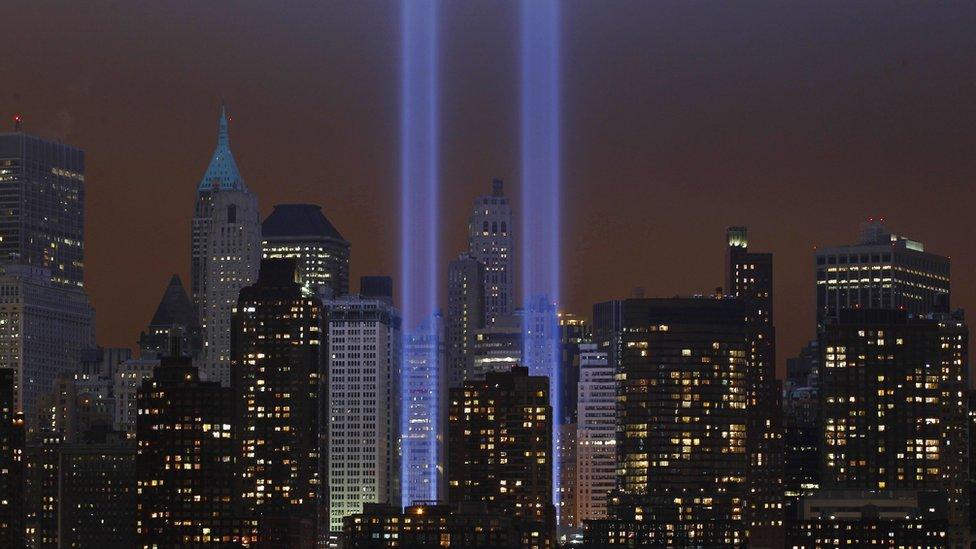
- Published11 September 2021
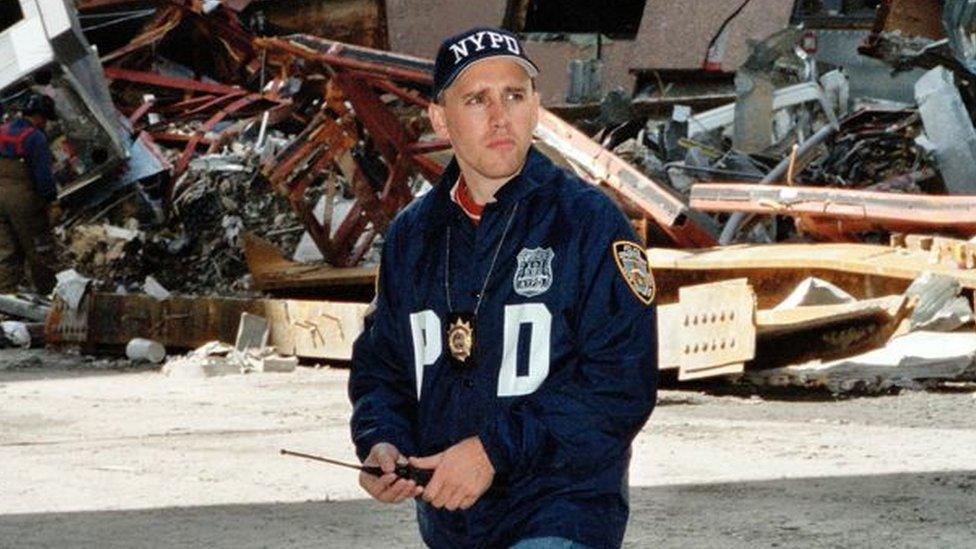
- Published10 September 2021
